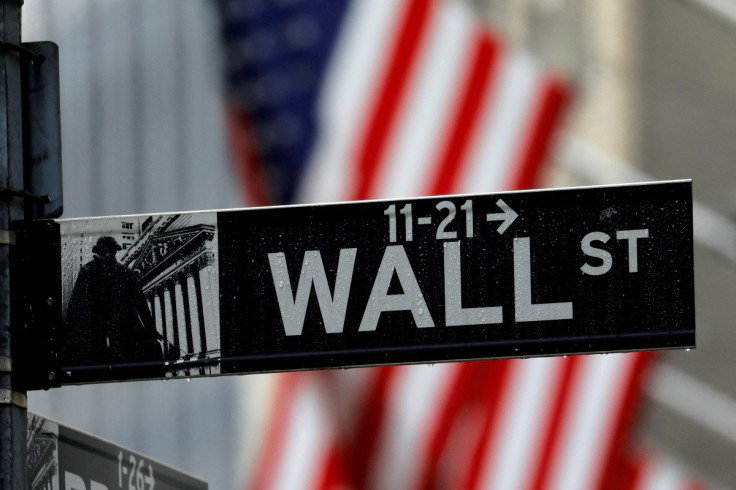US Stocks Start The Week With Another Sell-Off On Earnings, Interest Rates Worries
A Wall Street sell-off that began at the end of last week rolled over to this week, driven by interest rate and earnings worries.
All major equity indexes ended Monday's trade lower, with the S&P 500 dropping 0.75%, the Dow Jones Industrials losing 0.32% and the tech-heavy Nasdaq falling the most by 1.04%.
Market participants were spooked by the recession talk by JPMorgan Chase & Co chief executive Jamie Dimon. It could push earnings and equity prices much lower from these levels.
Then there was the hangover from earnings warnings from chip maker Advanced Micro Devices on Thursday, which set the stage for the sell-off in tech shares on Friday.
Chip makers have been in a perfect storm recently due to a slow-down in sales of PCs, a ban on selling specific chips to China and a strong dollar, which hammers overseas earnings.
And there was the hangover from a labor market report released Friday morning. It showed that the U.S economy continues to add jobs at a robust pace, driving the unemployment rate lower and hourly earnings higher.
While the report was good news for the main street, it's bad news for Wall Street, as it pushed interest rates. For instance, the benchmark 10-year U.S Treasury bond ended the week yielding 3.88%, up from 3.62% earlier in the week, while the two-year Treasury bond ended the week paying a 4.31% return, the highest rate in more than a decade.
These rates carried over to Monday, as the Treasury bond market was closed on Friday in observance of Columbus Day.
Interest rates could head even higher on the short side of the yield curve. The Federal Reserve is still on a hawkish path as it strives to bring inflation down to its official target rate of 2%.
That's a big worry for Wall Street. Interest rates are a crucial factor in investing in every asset. It's the discounting factor in conventional valuation models, meaning that they push valuations lower as they rise. That's especially the case for smaller companies listed in NASDAQ expected to turn profitable in the distant future, thus the disproportional decline in these shares last week.
But higher interest rates hurt another class of equities, heavily leveraged companies. They must return to the capital markets to roll over that debt and end up with higher interest payments.
That could explain the spreading of the market sell-off in the shares of these companies. For instance, Charter Communications, a company with a debt/market value ratio of close to 2, saw its shares drop 2.4% for the week, more than twice the S&P 500.
Monday's sell-off brings the YTD losses in the major equity indexes in the range of 19.70% for Dow Jones to 33% for Nasdaq, meaning that the market may have already discounted the bad news on the interest rate and earnings front.
Thus, what happens from this time on depends on whether the future news on these two fronts will get better or worse. For instance, more high-profile earnings warnings will lower equity indexes, as they will have bad news on the inflation front. By contrast, fewer high-profile earnings warnings and better inflation numbers could set the market up for a rebound.
But all that depends on the state of the U.S economy, especially the state of the labor market. It sets the pace for inflation and, to some extent, earnings.
PNC Financial Services expect job growth to continue to slow in the near term as the impact of rising interest rates continues to diffuse through the economy, with employment flat by the middle of next year before picking up again in 2024.
"PNC expects the unemployment rate to increase and end 2023 at around 4.3% gradually," Gus Faucher, chief economist of PNC, told International Business Times.

© Copyright IBTimes 2025. All rights reserved.






















